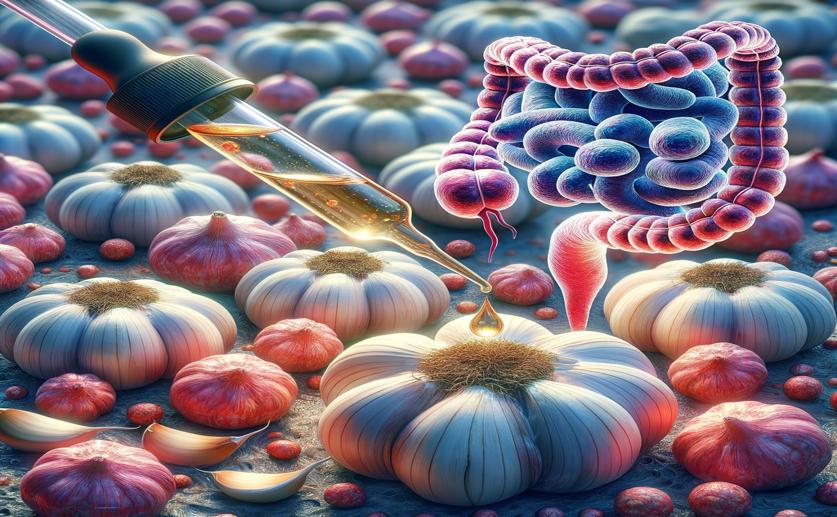
Exploring Garlic Extracts and Cancer Drug Impact on Colon Cancer Cells
Greg Howard
12th April, 2024

Image Source: Natural Science News, 2024
Key Findings
- In Turkey, black garlic showed higher antioxidant levels than white when water-extracted
- White garlic with chemo drug 5-FU increased cancer cell death
- Some garlic extracts may boost chemo effectiveness but can also have pro-oxidant effects
References
Main Study
1) Investigation of Antiproliferative Effects of Combinations of White and Black Garlic Extracts with 5-Fluorouracil (5-FU) on Caco-2 Colorectal Adenocarcinoma Cells.
Published 11th April, 2024
https://doi.org/10.1002/mnfr.202300820
Related Studies
2) Crude Garlic Extract Inhibits Cell Proliferation and Induces Cell Cycle Arrest and Apoptosis of Cancer Cells In Vitro.
3) Effects of water garlic extracts on cell cycle and viability of HepG2 hepatoma cells.
Journal: The Journal of nutritional biochemistry, Issue: Vol 17, Issue 11, Nov 2006
4) Garlic intake and cancer risk: an analysis using the Food and Drug Administration's evidence-based review system for the scientific evaluation of health claims.



 4th April, 2024 | Jenn Hoskins
4th April, 2024 | Jenn Hoskins